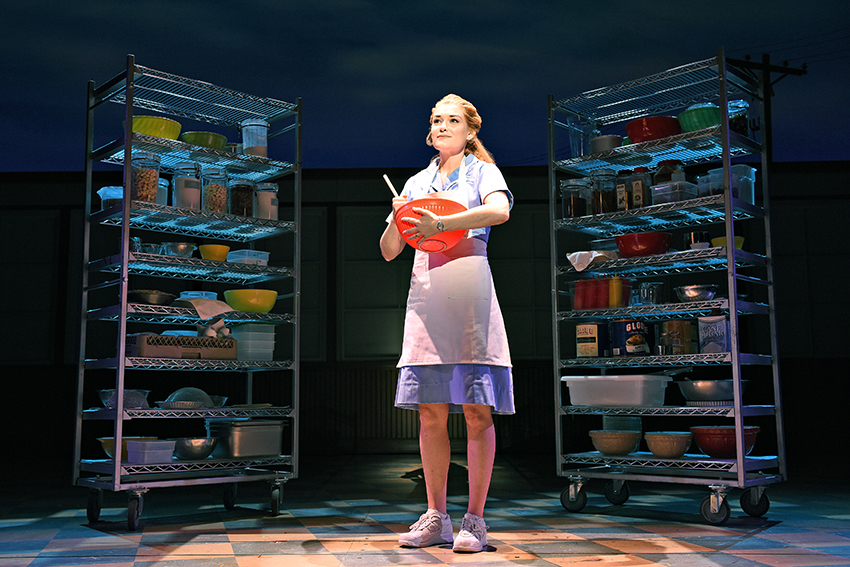A story filled with pie, friendship and motherhood will penetrate the hearts of musical lovers this week in Austin.
Lexus Broadway in Austin, presented by Texas Performing Arts, will host the musical “Waitress” from Jan. 22–27 at Bass Concert Hall. Uniquely, the musical flips the stereotypical gender roles of fictional characters.
“Waitress” follows a woman named Jenna, an avid pie baker and waitress at a diner. While in an abusive relationship with her husband Earl, she discovers she’s pregnant and must assess her next steps. Using pies as metaphors for life, she navigates friendships, learns about motherhood and recognizes her self identity.
Tim Rogers, Texas Performing Arts student engagement director, said he anticipates a large audience because the musical appeals to a broad spectrum of people.
“(‘Waitress’ has) a little bit of everything because it’s fun, upbeat music but an interesting story,” Rogers said.
Taylor King, advertising sophomore and self-described devoted feminist, saw “Waitress” for the first time on Broadway last summer and explained the musical’s novelty — being produced by an all-female creative team.
“Especially on Broadway, there’s not a ton of shows completely made by women, for women,” King said. “So it’s good to feel like your experiences are universal.”
The musical stands out from other works because the story revolves around a woman. Mary Beltrán, an associate professor of radio-television-film, said presenting a woman’s life as the main subject hasn’t always been the case.
“Hollywood films, in particular, still tend to revolve around male protagonists,” Beltrán said.
This poses the question of whether or not “Waitress” represents these female protagonists fairly, which can be determined through the Bechdel Test — a three-criteria test used to evaluate female characters and their representation.
The criteria says the work of fiction must have at least two women, they must talk to one another and their conversation must be of a topic other than a man. If the work displays all three, it’s fair to assume the work represents women justly.
However, Beltrán said she is unsure of the test’s usefulness.
“The Bechdel Test is just one way to assess whether the female characters are dimensional and nuanced,” Beltrán said. “It doesn’t give you the whole picture of how it represents gender or how it depicts feminist subjects.”
Despite these implications, “Waitress” still depicts life for many women. King said she identified with the female characters in “Waitress” because each woman self-sacrifices because of a man.
“I really appreciated that because I had just ended a relationship with a guy who wasn’t abusive, but he wasn’t good,” King said. “I gave up a lot to make him feel more secure in his manhood.”
After watching “Waitress,” King said she felt she didn’t have to sacrifice anymore and neither should other women. Reflecting on messages of female empowerment, King said “Waitress” validates feelings and situations women experience but never talk about. She said it serves as an anthem for this generation’s feminists.
“‘Waitress’ is about how women persevere,” King said. “It’s about feeling empowered, even when everything in your life isn’t going well and how you keep strong through it.”
Tickets starting at $30 are purchasable online, by phone or at the box offices.














